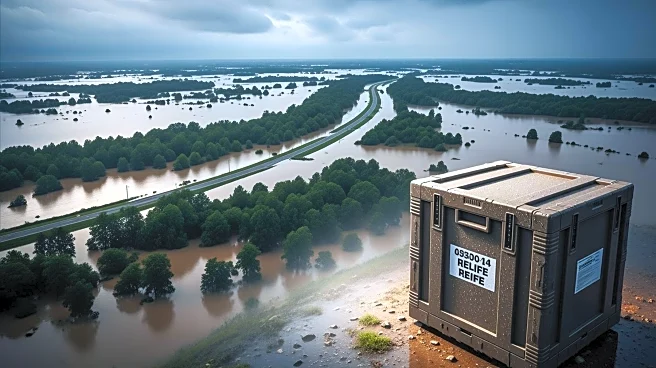Rapid Read • 8 min read
Iranian President Masoud Pezeshkian has appointed Ali Larijani as the new secretary of the Supreme National Security Council (SNSC), replacing Ali Akbar Ahmadian. This appointment is seen as a move by moderate and pragmatic hardline elements within the Iranian regime to exert more influence over Iran's security policy following the Israel-Iran War. Larijani, who previously served as SNSC secretary from 2005 to 2007, is known for his moderate stance and has been involved in significant diplomatic engagements, including the passage of the 2015 nuclear deal. His appointment is expected to impact Iran's engagement with Western countries, as well as its strategic partnerships with Russia and China.
AD
The appointment of Ali Larijani as SNSC secretary is significant as it signals a potential shift in Iran's security policy and international relations. Larijani's moderate approach may lead to increased diplomatic engagement with Western countries, potentially affecting ongoing nuclear negotiations and regional stability. His previous involvement in the nuclear deal and relations with Russia and China suggests that Iran may seek to balance its international alliances while addressing internal security challenges. This development could influence U.S. foreign policy and military strategy in the region, as Iran's security posture evolves.
With Larijani's appointment, Iran may pursue a more balanced approach in its foreign policy, potentially leading to renewed diplomatic efforts with Western nations. The restructuring of Iran's decision-making apparatus, including the establishment of a 'Defense Council,' indicates preparations for future conflicts and a response to organizational failures during the Israel-Iran War. The SNSC's new leadership may also impact Iran's strategic partnerships, particularly with Russia and China, as it navigates complex geopolitical dynamics.
Larijani's appointment reflects broader shifts within the Iranian regime, as moderate and pragmatic hardliners seek to reshape Iran's security and foreign policy. This could lead to long-term changes in Iran's approach to regional conflicts and its role in international diplomacy. The emphasis on restructuring decision-making processes may also address systemic issues within Iran's defense apparatus, potentially affecting its military strategy and regional influence.
AD
More Stories You Might Enjoy










